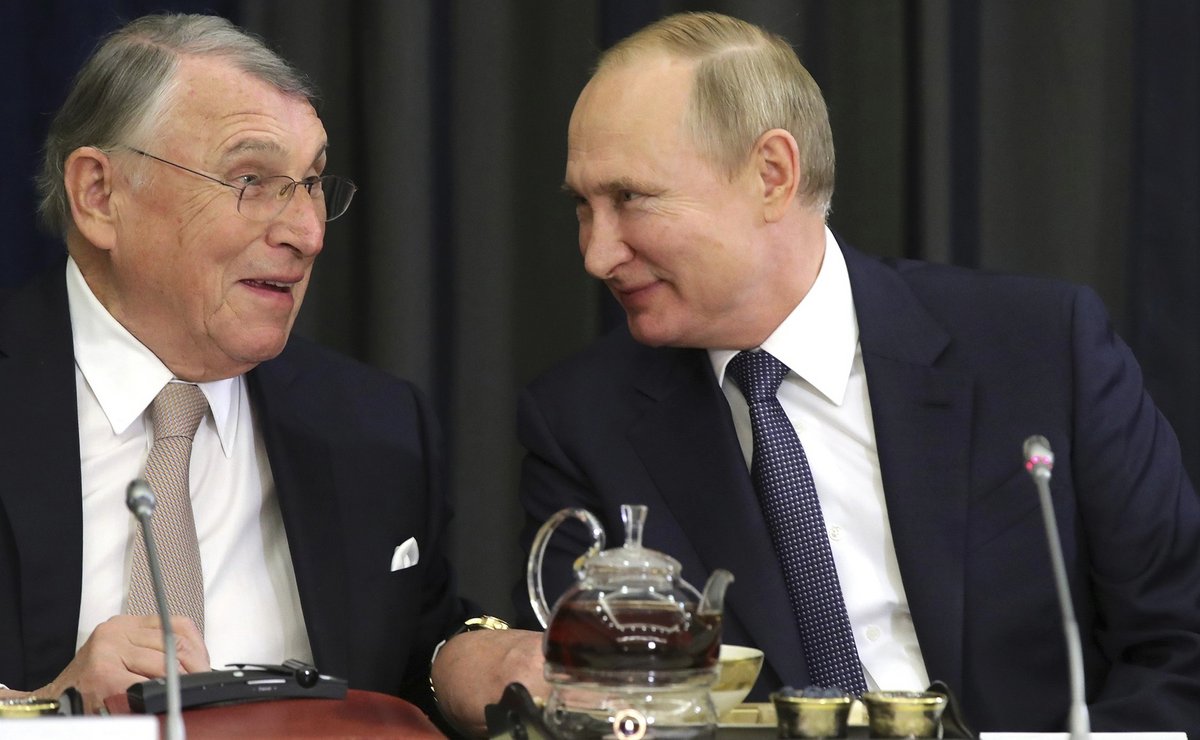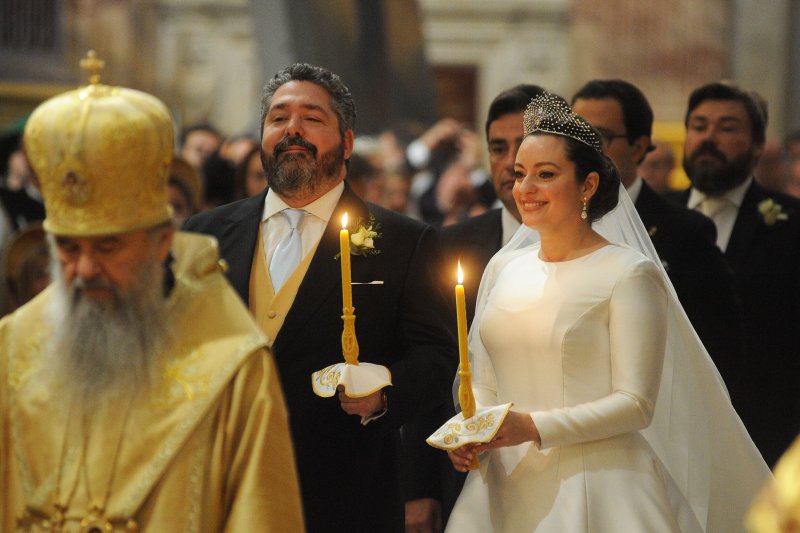Trade representations, honorary consuls, and chambers of commerce. “Grand Dukes”, oligarchs, and ambassadors’ family members
Despite the European Union’s active sanction policy, there are still plenty of active trade representations of Russia in the EU. Although they formally belong to Russia's Ministry of Industry and Trade, they double as Commercial Sections of the local embassies of Russia. Unlike diplomatic missions, trade representations are only established in select countries reflecting Russia's strategic interests either at the government level or at the level of large private business.
Trade representations
According to TEXTY research, there are at least 18 active Russian trade representations in the EU (all of them appear on our database). It should be noted that Russia’s trade representation in Belgium is managed by the former director of Gazprom sales office in Brussels Andrey Kuznetsov while the one in Austria is managed by the former head of Rostec state corporation Andrey Plotnikov. What exactly do the trade representatives do? For example, they meet with representatives of local businesses at the regional level to discuss possibilities of investing into Russia or facilitate the cooperation of Russian regions with European partners. They also assist Russian businesses in taking part in the EU trade shows despite the sanctions — even if limited to a display stand with three pieces of equipment. Some trade representatives with an active media following have joined the Russian propaganda: they spread the narratives about the “decaying West” (for example, such statements come with regularity from the trade representative of Russia in Finland) while lobbying the interests of specific Russian businesses such as Nornickel, Russian Railways, Novatek and others.
Honorary consuls
The honorary consuls of Russia officially appointed by the Ministry of Foreign Affairs of Russia from among the local businesspeople, lawyers, cultural figures and academics are tasked with promoting Russian business interests in Europe and fostering relations with the local communities and governments. Earlier, TEXTY published a dedicated in-depth study of the inner workings of the honorary consulate network. The database of this project also includes the subjects of that investigation as well as the active and former consuls who show interest in continuing economic cooperation with Russia.
Although the primary focus of honorary consuls’ mandate is cultural cooperation and supporting Russians in the “entrusted” territories, most of them also engage in business development. Some of the most prominent lobbyists of Russian interests in Europe include the honorary consul of Russia in Verona, the former Head of Moscow office of Banco Ambrosiano Veneto, which preceded Banca Intesa S.p.A. (today — the Intesa Sanpaolo Group) Antonio Fallico. Mr Fallico also organized the Eurasian Forum in Verona with its traditional star guest Igor Sechin, the head of Rosneft (last year’s forum was moved to Baku due to the sanctions). The honorary consul of Russia in Naples Vincenzo Schiavo directly lobbied the sales of Sputnik V vaccine in Italy. The list also includes the former honorary consuls of Russia in Germany: Klaus Mangold who was even nicknamed Mr Russia at home for his overzealous lobbying of doing business with Russia, Heino Wiese (who played a key role in the Gazprom lobbying network), Nicolas Knauf whose company Knauf Group was accused of supplying construction materials to the Russian army following Russia’s invasion into Ukraine. For a long time, the honorary consul in Slovenia was the Russian businessman and the owner of Slovenia’s largest steel manufacturer Andrey Zubitskiy (Forbes Russia No. 197).

Photo credit: kontextwochenzeitung.de
Some of Russia’s honorary consuls in Spain own companies which promote Russian businesses in Europe and offer the same services to Spanish businesses in Russia. The honorary consul of Russia to the Faroe Islands Maria í Akrabyrg, who owns an agency which services Russian vessels, facilitated the extension of a fishing agreement with Russia which enables Russians to catch fish in Faroe waters and transship the catch in Faroe ports regardless of the sanctions. The former honorary consul of Russia in Slovakia Igor Simchich the organizer of Esimit Europa project used to carry a giant Gazprom logo on the sail of its yacht claiming it was part of a unifying initiative for the EU.
Chambers of Commerce
Bilateral chambers of commerce, business councils, intergovernmental economic forums and other platforms aimed at enabling discussions and experience exchange have been actively used by Russia to promote the interests of Russian business in Europe and do the same for European companies in Russia. A quick look at the members of the chambers of commerce can give at least some idea of what companies want do business with the aggressor state, how they responded to Russia's invasion into Ukraine, who believes that “economics must be kept separate from politics” etc. Those who represent Russia on the management or control body of a chamber of commerce can also help identify the informal supervisor of the relations with a given European country on behalf of the Russian business.
For example, the founder of the Russian liquefied natural gas producer Novatek Leonid Mikhelson (Forbes Russia No. 4) has been listed as the chairman of Russian-Spanish Business Council, the First Deputy General Director at Rostec State Corporation Vladimir Artyakov represents Russia in the Russian-Austrian Business Council, the CEO of “Rosseti” Pavel Livinsky has a seat in Russian-Serbian Business Council while the Russian-Slovenian Business Council is chaired by Eduard Vayno the father of Putin's Chief of Staff and member of the board of Avtovaz who is subject to Ukraine’s sanctions.

Photo credit: finance.si
For what it's worth, this project is primarily focused on the Europeans who are willing to lobby Russian interests. The bilateral chambers of commerce fall into two main categories: those operating under the “umbrella” of the Chamber of Commerce and Industry of the Russian Federation and those acting independently. While the former prefer to keep their business private and refrain from regular updates, the latter maintain separate websites or have other registered legal entities. Although all of them used to be quite active between 2019-2021, most of them suspended activities after Russia’s full-scale invasion into Ukraine.
The Russo-British Chamber of Commerce is a prime example of those which went to “hibernation mode”. In August 2022, The Times discovered that the Russo-British Chamber of Commerce was still being funded by the members despite Russia’s invasion into Ukraine. According to their website, the organization intends to resume its principal role of facilitating and encouraging trade and investment between the Russian Federation and the UK as soon as there is “once again, the agreement of the governments of both countries to do so”. The March 2023 publication in Daily Mail revealed that the Russo-British Chamber of Commerce was run by Alf Torrents, the husband of Britain’s ambassador in Moscow Deborah Bronnert. Acting as the executive director of the organization, Mr Torrents had argued vociferously against sanctions. The Foreign Office said there was no conflict of interest in the appointment.
There is one more more active business organization situated in close proximity to the “decision making centers” of the EU since it promotes the interests of businesses in the Russia-Belgium-Luxembourg triangle — the Belgian-Luxembourg Chamber of Commerce in Russia. The formal heir to the Imperial Russian throne and the “Grand Duke” George M. Romanoff is the Honorary President of the organization. Upon closer look, Mr Romanoff turns out to be a common lobbyist and business consultant based in Madrid. He used to advise to the European Commissioner for Energy and manage the Nornickel business in Europe. Mr Romanoff also runs “Romanoff&Partners” firm registered in Brussels. The firm advertizes itself as “EU Liaison office (representation and public affairs to build your influence)”.

The Franco-Russian Chamber of Commerce and Industry, the Italo-Russian Chamber of Commerce, and the German-Russian Chamber of Commerce continue working normally, and the Swiss-Russian chamber of commerce even has scheduled events for 2023 . Most of those organizations consult their members on sanctions and the changes to the EU and Russian legislation, facilitate market exits and support the companies that choose to continue doing business on the aggressor's territory regardless of the war.
In countries with a much smaller volume of trade with Russia, the courses of action chosen by chambers of commerce vary significantly. Some of them pretend to ignore the war altogether like the president of the Romanian-Russian Chamber of Economic and Cultural Cooperation Tudor Afanasov who continues seeking opportunities for cooperation with Russia and supporting its narratives and propaganda. Others have only retained the Russian section — i.e. the companies which are still interested in finding European suppliers. This is happening amid an exodus of local businesses from such business associations. The Russian-Czech Mixed Chamber of Commerce was founded in 2012 to advocate, among other things, for the interests of Rosatom in the completion of nuclear power plants in the country. Today, according to Czech media, the lobbyists are out of work since Czech businesses have been steadily giving up on the organization in the recent years.

